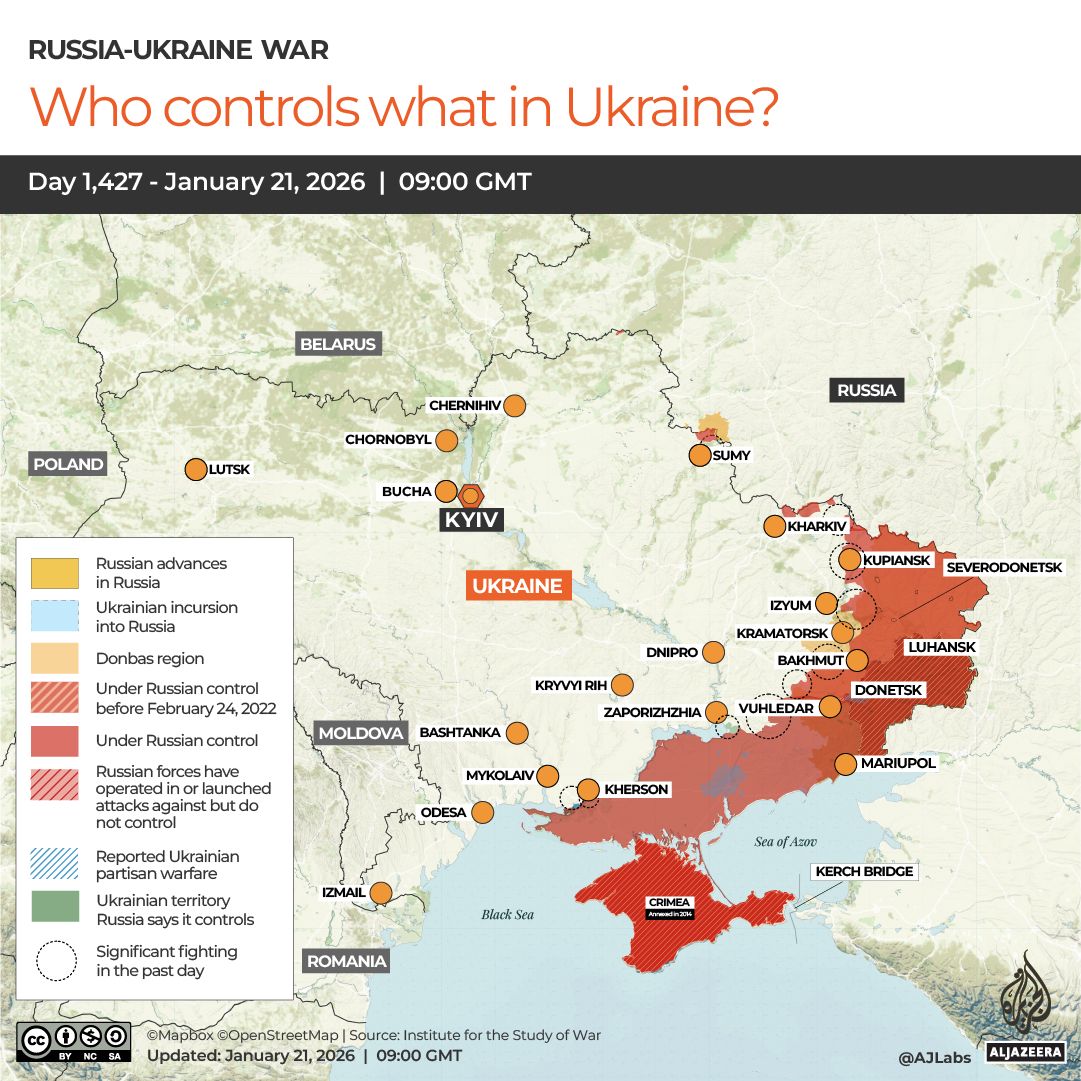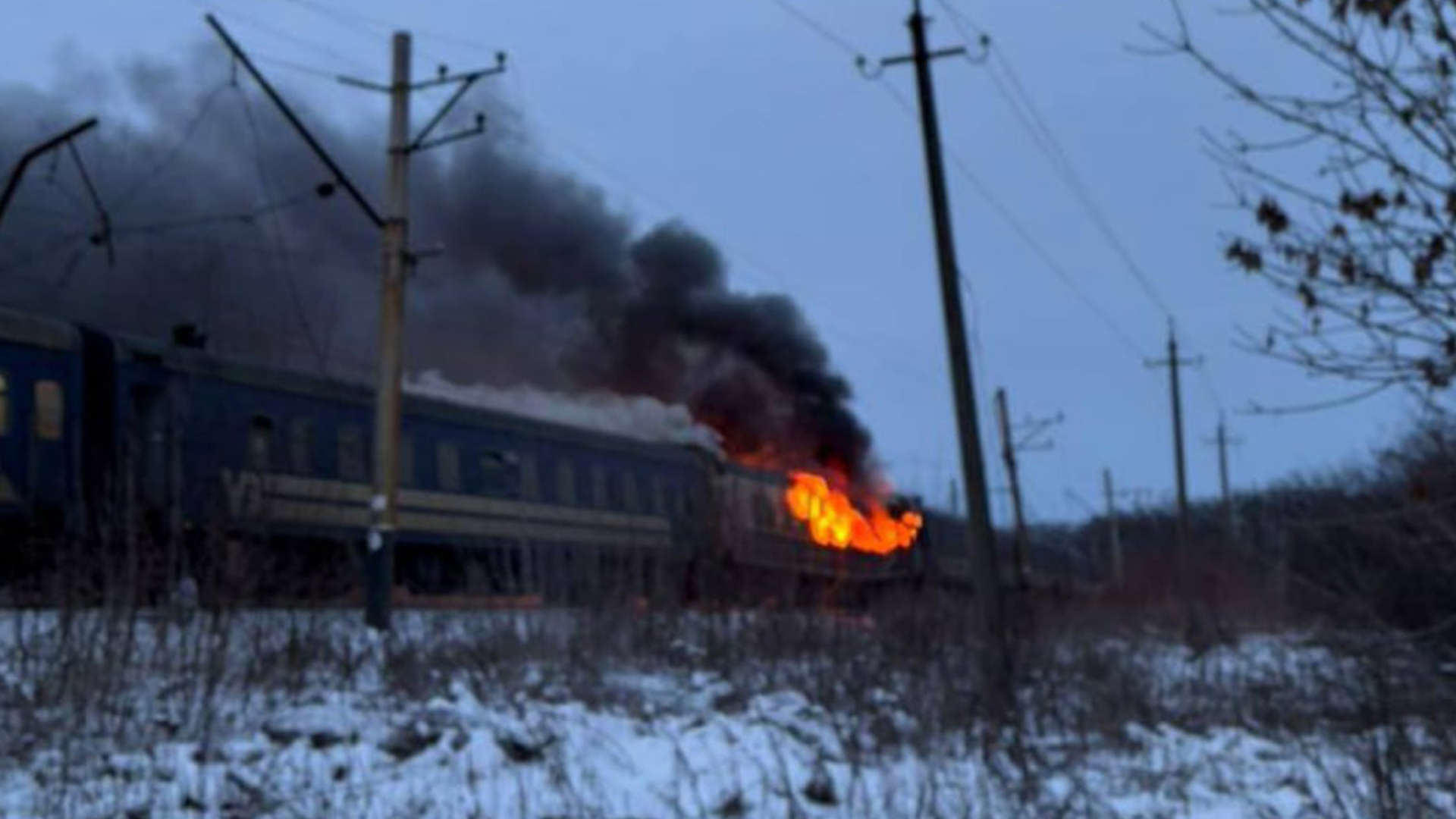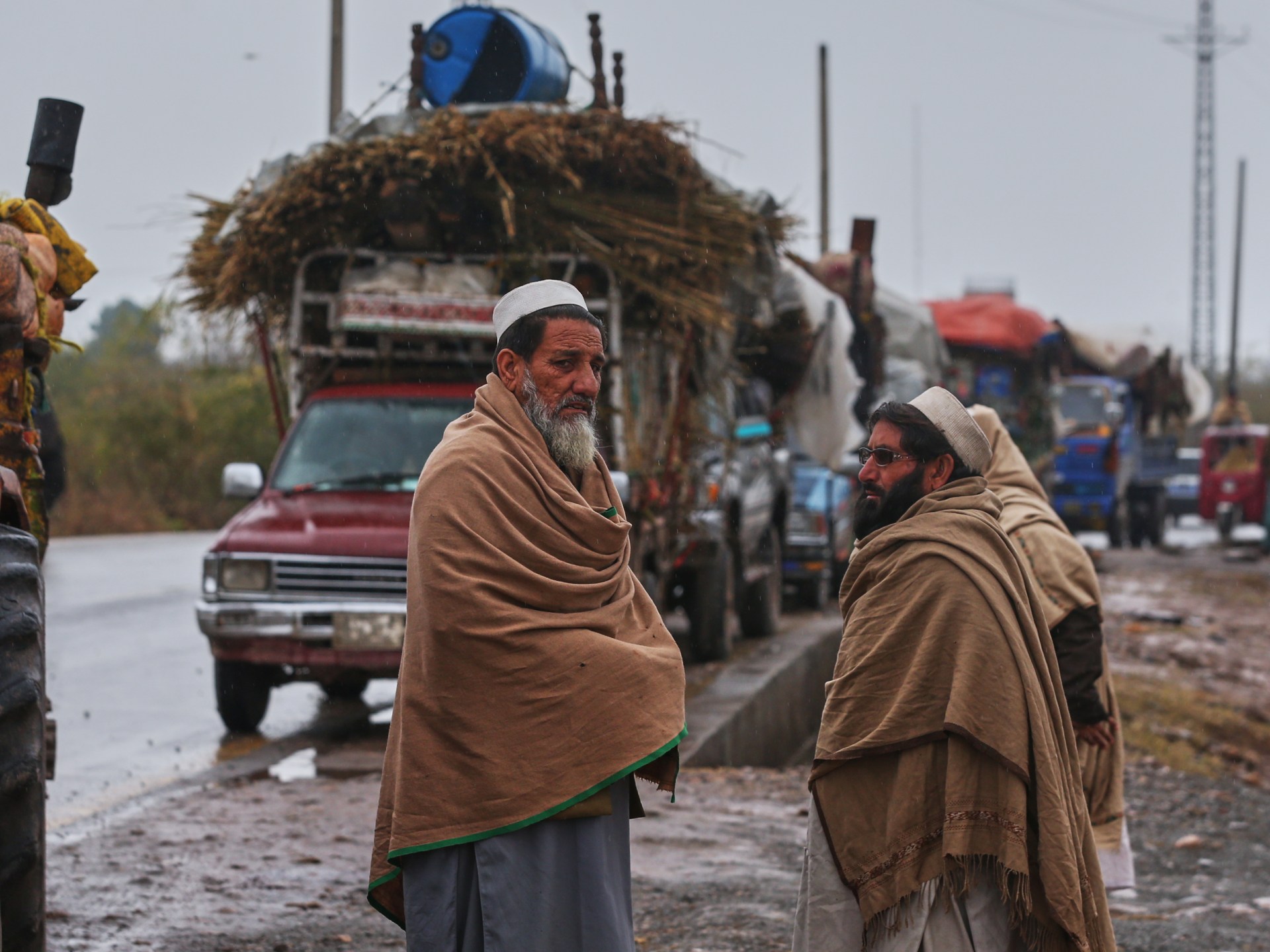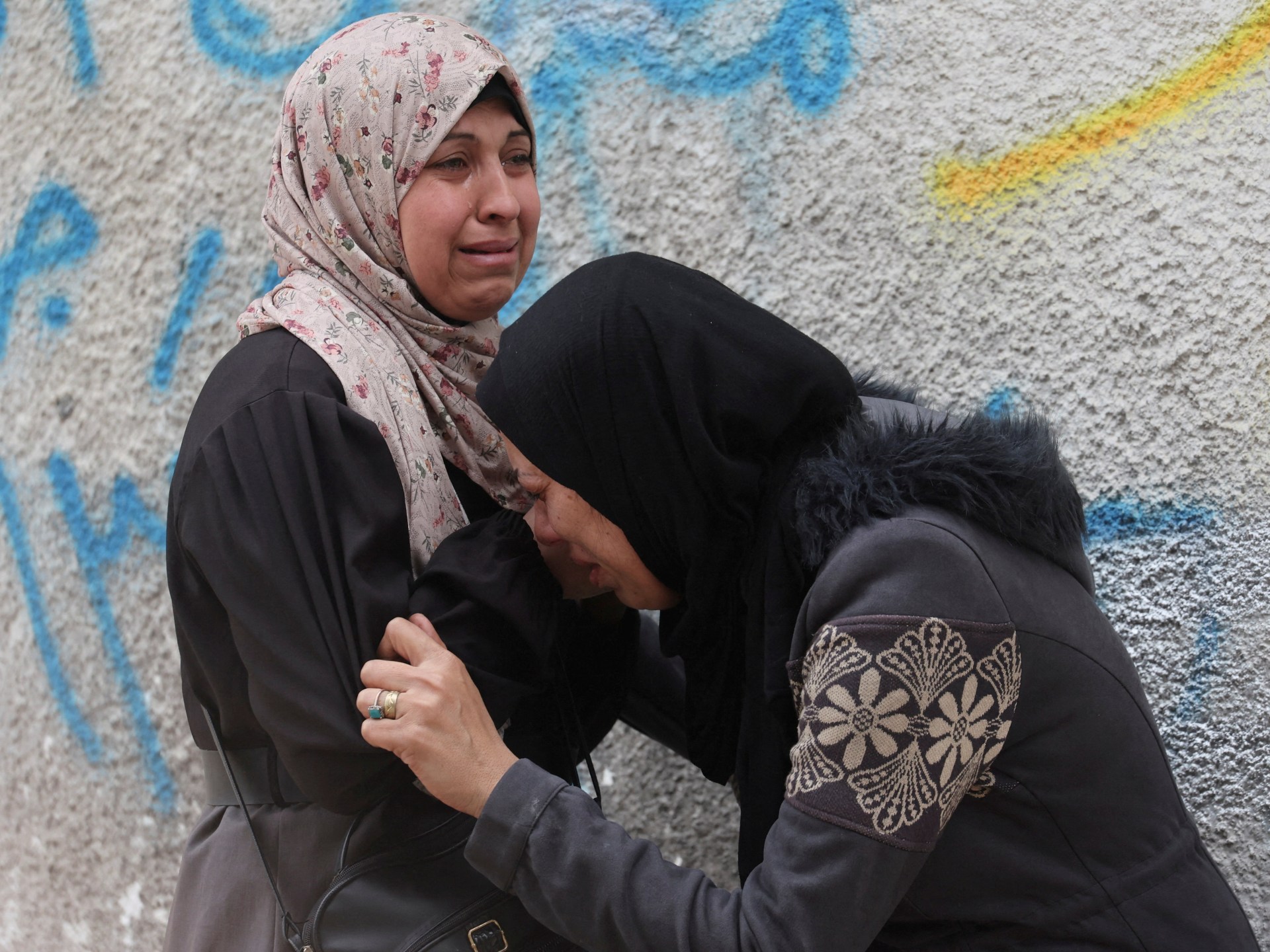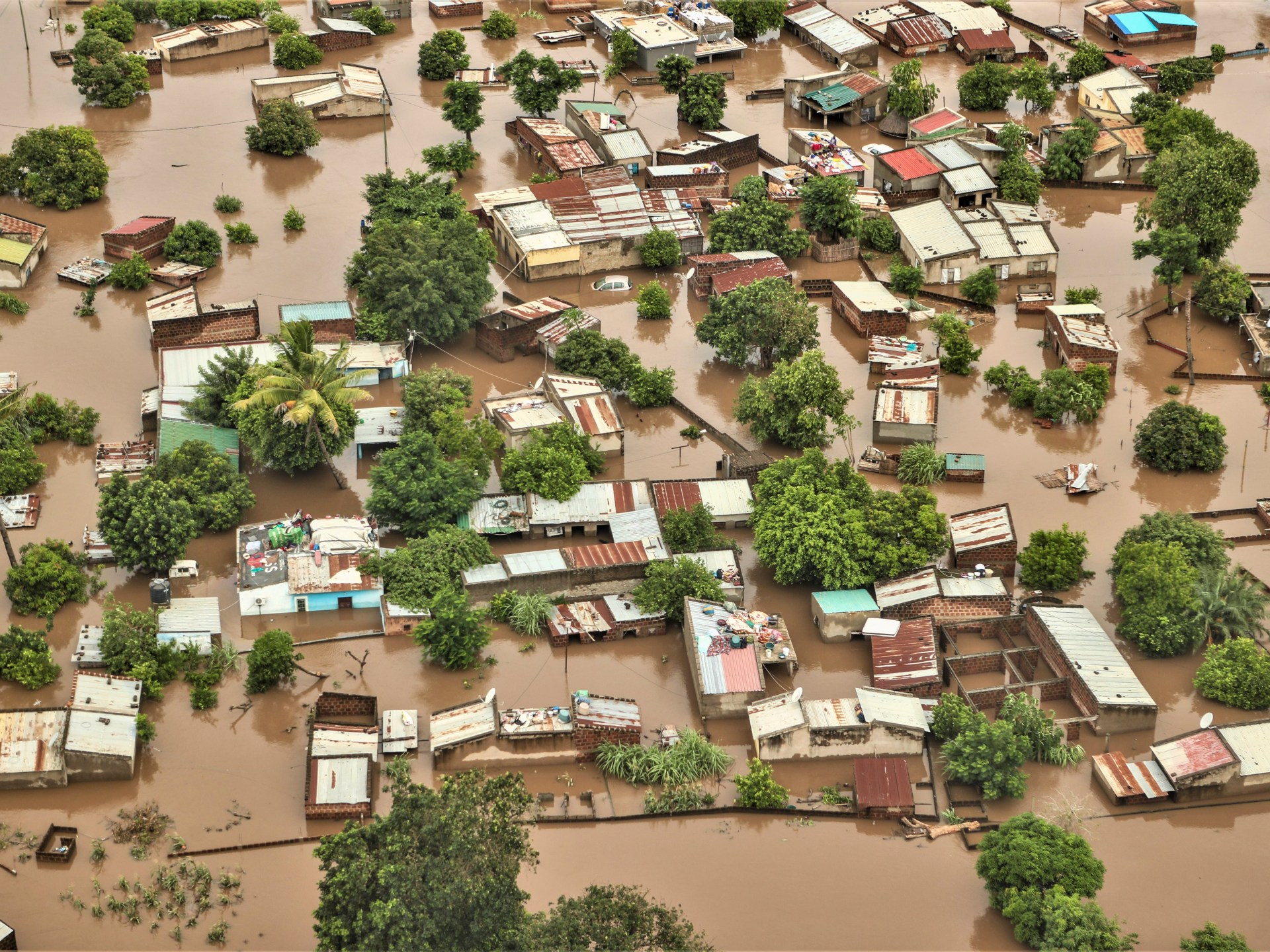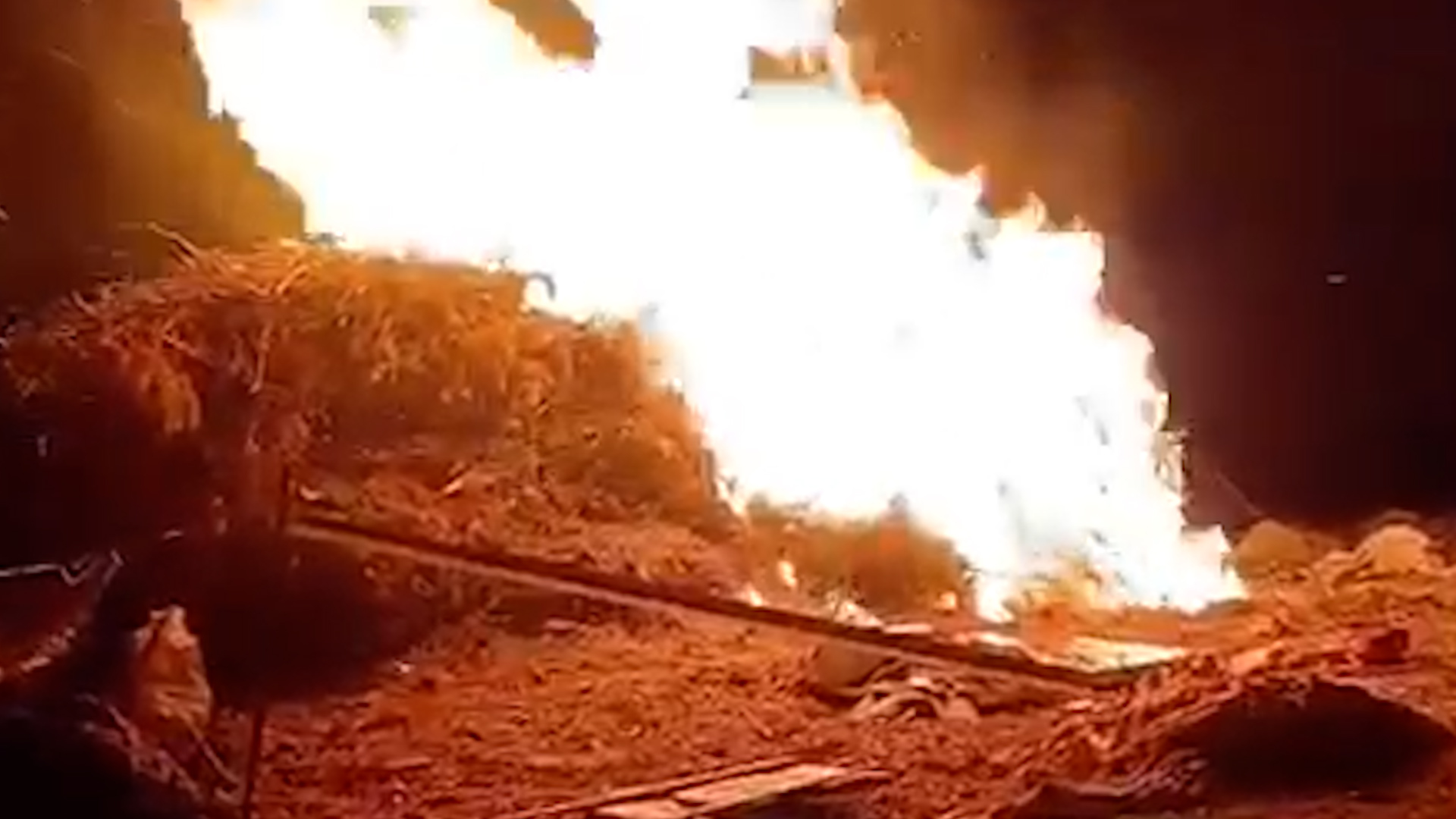A Russian air attack has killed two people in Kyiv region’s Bilohorodska community, and a drone attack killed another person in central Ukraine’s Dnipropetrovsk region, according to local authorities.
The deadly attacks came overnight on Wednesday, just hours after a deadly drone attack on a commuter train in northeastern Ukraine’s Kharkiv – an incident denounced as “terrorism” by President Volodymyr Zelenskyy.
Recommended Stories
list of 3 itemsend of list
Also on Wednesday, three people were injured in a Russian drone attack on port infrastructure in the southern region of Odesa, according to Governor Oleh Kiper.
In the capital, Kyiv, a 17-storey residential building was hit, causing minor damage to the roof and damaging windows on the upper floors, emergency services said.
Several residential buildings in Kyiv remain without power due to earlier Russian attacks on the country’s energy grid.
Russia attacked Ukraine overnight with an Iskander-M ballistic missile and 146 drones – 103 of them neutralised by air defences, Ukraine’s air force said.
On Tuesday night, five people were confirmed dead and several others injured after a Russian drone hit a passenger train near Kharkiv city, Al Jazeera’s Audrey Macalpine said, reporting from Kyiv.
“This attack has struck fears among Ukrainians,” Macalpine said, noting that the train was carrying about 100 passengers.
“With the country’s airspace closed, people rely heavily on trains as a means of moving around the country,” she said. “And this is a culmination of weeks of threats on the security of the train system.”
In a statement, Zelenskyy said the attack in Kharkiv undermined peace efforts and urged allies to step up pressure on Moscow to end the war.
“In any country, a drone strike on a civilian train would be viewed the same way – exclusively as terrorism,” Zelenskyy said on his Telegram channel.
“The Russians have significantly increased their ability to kill, their ability to terrorise,” he said, while rallying the international community to put more “pressure” on Moscow to halt its deadly offensive amid ongoing negotiations for a ceasefire.
“Russia must be held responsible for what it is doing,” Zelenskyy said.
The attacks that have left many Ukrainians without power in freezing winter temperatures come after Russian and Ukrainian negotiators met in the United Arab Emirates last week for United States-brokered talks aimed at ending the conflict.
The next round is expected to take place on February 1, according to Zelenskyy.
Ukraine is asking partners, particularly the US, for strong security guarantees in the event of a peace deal that would prevent Russia from attacking again.
